"How do we go from 14 companies to one team?"
Heavyweight private equity players APAX spotted the opportunity to bring together a disparate group of health and safety, climate software SMEs to offer a new holistic risk management offer to clients. A total of 14 formerly independent businesses from North America, Scandinavia and UK merged to become one new team. With wildly different regional working cultures at play, a focus on the internal organisation culture was mission critical.
Working with CEO Tom Goodman and Head of People Saqi Sheik we co-developed a new ‘Culture Code’ to become the internal reference point of a new set of working expectations. This code was developed with an internal team that cut across hierarchy, geography, department and background - coming together for the first time. Whilst respectful of the past, the focus was on a different organisational future and what it was going to take to build trust and ramp up performance.
Working with an existing value set, we were able with EcoOnline people to dig down into the everyday behaviours that were the most important for driving the business forward. We created a shared org culture, while playing to the strengths of the many regional cultures. We identified the cultural levers that meant the most to the people of EcoOnline and would have the greatest impact on changing behaviours.
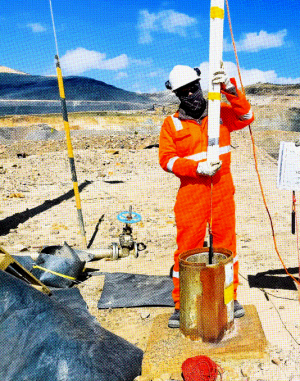
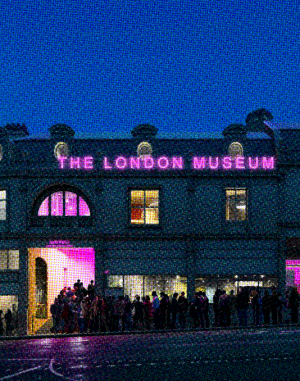
“How can a new address mobilise change within?”
The Museum of London has been a fixture of the London museum scene since it opened with great fanfare in 1976. Yet when we met them a few years ago, it had become less of a ‘must visit’ and more of something to do if you couldn’t think of another museum to go to. Tucked away on a roundabout at London Wall, whilst popular with school groups and lost tourists, it had become less of a relevant leisure institution than it should be. Sharon Ament, the museum Director, wanted to change all that and shared with us her ambition with a no-nonsense football analogy: ‘We are in Division Two and we need to be in the Premier League’.
The move to Smithfield market in 2026 offered the opportunity to revisit the organisation’s strategy, culture and communications and pursue a more ambitious and focused agenda. We worked with museum staff to codify a new set of ‘operating’ principles that spoke to the core mission of the museum in today’s London. Alongside a re-articulation of the mission and identity (involving 500 Londoners see here), these principles provided direction internally as to what to prioritise and reciprocal expectations.
Discussions internally on the organisational implications of what it would really take to deliver on them took place (‘what and how are we doing our future exhibitions?’). All this provided a shared internal understanding of the strategic priorities in a way that could be made actionable and day to day.
This allowed for the museum staff to find their own place and contribution in delivering on the Museum mission and harnesses the energy of the team as a whole. The London Museum will re-open in 2026.
"How do we balance the simple with the serious?"
Climate change makes for risky business. The insurance and investor community have had their eye on it for years, but it's only relatively recently that technology and the user experience has come together to make responding to this existential threat a step easier for those leading large organisations. Better data analytics and software tools (informed by AI) are becoming sophisticated and robust enough to be integrated into more and more aspects of business and investment decision making.
Josh Gilbert and Gopal Erinjippurath, co-founders of SustGlobal, have been diligently plugging away at the frontiers of climate risk data for several years. They have been on a journey to develop usable tools that help investors and businesses navigate an increasingly uncertain future. And make the right call.
There is much at stake for the investors and clients that SustGlobal set their sights on. It has to be pitch perfect. Together with Design partners Mortar&Pestle, we gave the SustGlobal team a clearer, and more confident strategic narrative and brand identity that captures seriousness and simplicity. SustGlobal is climate risk decoded.

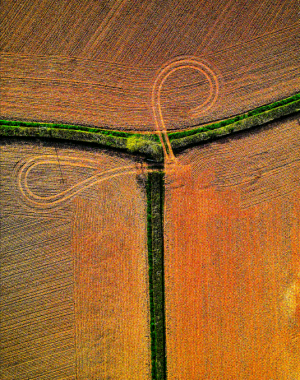
“How do we get the recognition we deserve?”
CNH is one of the world’s largest agritech players, with an increasingly sophisticated and growing portfolio (thanks to years of M&A activity) that boasts some of the most trusted brands in agriculture and construction. Despite having a strong track record, leading innovation, and a well-received purpose statement, the leadership team felt CNH was not getting the attention, share price or employee connection it deserved.
We worked with the leadership team on strategies to get CNH noticed on the global business stage, as a credible and serious challenger with great potential for the future. Finding their voice and their role on wider social and environmental issues that connect with their communities, drives awareness in financial markets and attracts the best talent. We took our inspiration from the real and direct role they play in two industries that are at the centre of many economic and environmental conversations.
“Can 3D printing save the world?”
There was a time when this technology was hyped up within an inch of its life and then the inevitable disappointment that the world had not been immediately transformed. Some transformative technologies however need time to find their place. And adaptable champions. It’s been great to work with the CEO and leadership of Stratasys, an additive manufacturing giant, to articulate their business strategy in a way that others can rally behind, internally and externally, to drive conversations and new forms of collaboration. They are on a big journey to shift the culture internally from pushing printers to co-creating answers to critical manufacturing challenges, working together with their industrial customers on issues the world needs to solve.
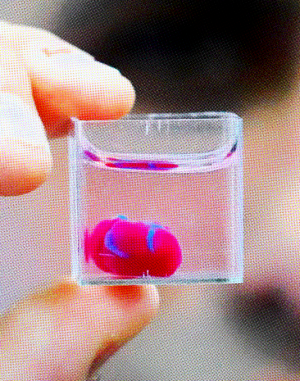

“What makes this University tick?”
Public institutions in the UK are notorious for their complicated stakeholder ecosystems and brutal funding dynamics. Arts University Plymouth wanted to ensure that the months of work that had gone into a clear new strategy to thrive in this world was articulated in a way that could both inspire as well as explain.
This meant taking the detailed policy and metrics language and finding the words that could resonate with a wider audience but also stay true to the intent.
We took the train to Plymouth and explored the hopes and fears of a diverse group of existing students in a lively, short and sharp intervention on-site. This ensured that the final manifesto was written in a way that would resonate with their most important audience, future students.
“What does impact investment look like?”
Billions of dollars flow into the latest copycat tech startups. But deep down we know the world does not need them.
It’s been so refreshing to work with Solina Chau and the gang from Horizons Ventures. Not for Solina the slightly faster grocery delivery service or the ineffectual personal health rewards app. But instead a focus on finding and funding founders and scaling their science and deep tech breakthroughs to solve some of the world’s biggest problems.
Solina and Horizons Ventures have an extraordinary track record of investing in the ‘next-normal’. So it was a delight to lead a multidisciplinary team in explaining her approach, highlighting her portfolio - and putting her ‘see problem, solve problem, repeat’ philosophy centre stage.
Thanks to SMN collaborators Toby and Matt Ingram, Samar Maakaroun, Midnight Studio and Richard Batty, who worked together at pace to get this up and out.
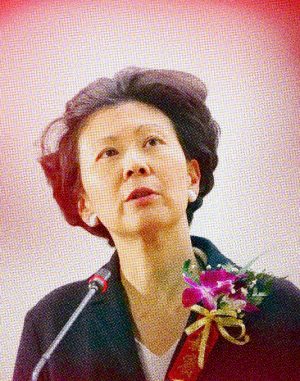
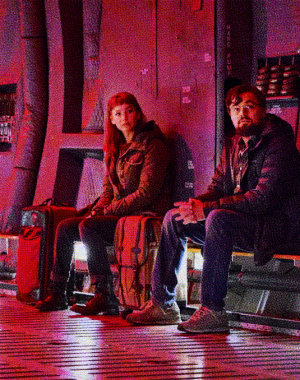
“How do we pick up where a Hollywood blockbuster ends?”
Don’t Look Up was an apocalyptic, politically charged allegory about the climate crisis. The movie left an aftermath of apathy, fear, amusement and anger. Instead of hiding in bunkers or trashing Capitol Hill, we needed to get viewers to turn those emotions into meaningful climate action. We worked alongside the Netflix sustainability team, climate scientists, behavioural scientists, creative minds and Hollywood talent managers to design a tailored Count Us In climate action platform. Collaborating to make climate action something pop-movie-goers would do. Plus, we got tweets from Leo and hugs from Adam.
“How do we change the world, faster?”
ClientEarth has a strong track record of using the power of the law to protect the environment. But the world needs things to change faster. So ClientEarth is determined to adapt and meet this challenge head on. We facilitated conversations with the new CEO and leadership team to reach a shared understanding of where the organisation needs to shift focus and prioritise efforts in the coming years for maximum impact.

“I don’t think we would have got to such clarity - at pace - without them”– Stefanie Pfeil, Chief External Affairs Officer, ClientEarth

"Bravo to Something More Near. This project shows what we should aspire to - when engagement is embedded as a way of doing things throughout the organisation"- Sharon Ament, Director, Museum of London

"You guys are everything"- Adam McKay, Hollywood Director, while giving us a big bear hug outside the Houses of Parliament


“How do we stay relevant in a mushrooming sector?”
The billions of investment that is piling into all things cleantech has led to a growing plethora of consultants, services, apps and institutions to help business leaders and investors navigate the space. All wanting to assist you on your journey to net zero, profits and beyond.
What does this mean for the godfathers of the cleantech movement? How do they evolve with the ecosystem? And stay focused on their role in the system?
We brought together the leaders of one of the original cleantech research and event companies, Cleantech Group, in a series of three short, sharp interventions, to help them identify, articulate and align around an updated positioning and proposition. One that better reflects the inherent strengths of their offer and their critical relevance to investors and corporates looking to navigate a very different tomorrow.
Image credit: Climate Outreach
“How do you kickstart an international community of young ecopreneurs?”
We curated and convened an international team of youth culture and social media experts from Europe and the Global South to help The DO School to get their latest, most ambitious fellowship off the ground. Lampost from South Africa, Yuvaa from India and Populate from Europe. Agencies who understand how their region is grappling with climate change in very different ways. Over the next 8 years, the BeVisioneers fellowship, sponsored by Mercedes Benz, is set to bring together and support 10,000 young people from all over the world. Giving them the training, funding and mentorship needed to turn their environmental ideas into reality.
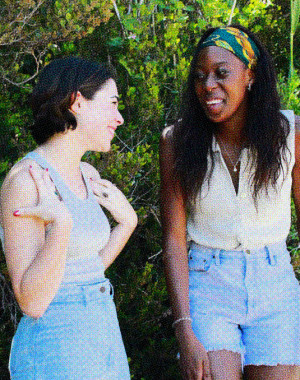

“How do you get three of the world’s conservation giants walking in step?”
World Wildlife Foundation (WWF), Birdlife International and Wildlife Conservation Society joined forces to create Trillion Trees. A united, global front to protect and restore the world’s forests. With a new executive director at the helm, we facilitated a process to redefine the role of Trillion Trees amidst a PR storm of (often questionable) tree planting initiatives from other players hogging the limelight. Our process cut across organisations and disciplines, to give these organisations the space to discuss and agree their priorities for forests. Focusing the efforts of the collaboration for greater impact. To speed up and scale up the positive power of forests for people, nature and the climate.
“How do we get Londoners to spend more time with us?”
With an upcoming move to a new building in Smithfield, the Museum of London leadership saw an opportunity to address their ambition of making the Museum a much bigger part of many more Londoners’ lives. This led us together revisiting and re-articulating their original 1965 charter, inviting in over 500 Londoners, finding participants from all 32 boroughs, getting Trustees and staff onside and developing a new mission, language, behavioural principles and identity. We worked with numerous partners including London’s favourite creative gang Uncommon. Want to see more? Opening in 2026!

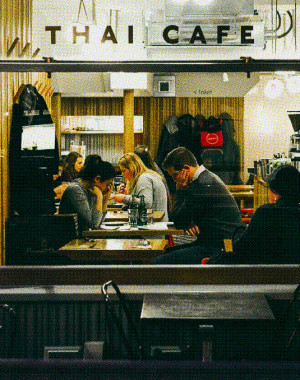
“How do we grow but keep the soul?”
Rosa’s went from independent Thai food stall to a nationwide fast casual dining juggernaut, with an injection of private equity and side step from the founders. Like many good start ups, much of the shared philosophy that makes the organisation special was bottled up in the people. A vibe. Not easy for newcomers to understand and action. We worked with the C-suite to articulate Rosa’s secret sauce, taking inspiration from people within - from the chefs to the ops team, and everyone in between. The process itself brought the teams together in ways we thought unimaginable during Covid lockdowns and restaurant furloughs. So good it made them cry.
“How do we get one billion people to take climate action?”
It’s 2019. People are still debating whether or not climate change is real. And the TED Countdown team asks us to help them get one billion global citizens to take action on climate. We jumped into the fire in radical collaboration with high profile partners such as UN Live, Do Nation, Accenture, Rare Center for Behavior and the Environment, SYSTEMIQ and Kin + Carta. We led development of the name, identity and language, to make climate action more accessible to the moveable middle, as part of a broader systems change initiative. We also developed contextualised climate action propositions for specific audiences, including Netflix’s Don’t Look Up and Breaking Boundaries titles, the Wildlife Conservation Society’s Wild For All campaign with Team Obama, and Planet Football League’s CUP26.


“How do you articulate a revolutionary idea that investors get in 5 minutes?”
The makers of Squeaky Energy have a genius new framework for conducting clean energy purchase power agreements. Only problem is, it’s really hard to pitch it to investors without boring them with the details. How is it different from what’s already out there? Why is it critical for the acceleration to clean energy? How is it even possible? In just three sessions, we helped Squeaky Energy get to the heart of the story and find the language needed to play it back in a simple but powerful pitch to investors.
“How do we keep our distinctive spirit as we grow?”
When we first met the Franco Manca management team, this UK fast casual dining operation was just under 40 pizzerias. They were growing with plans for rapid expansion. Under Chairman David Page (ex Pizza Express) they had managed to keep hold of much of the original Brixton pizzeria attitude embodied by co-founder Giuseppe Mascoli. Irreverent, foodie-obsessed and wanting to invite everyone to sit down at one of their venues without the usual fussiness. ‘It's a f*%king pizzeria not a restaurant!’ Giuseppe would growl when he spotted something out of sync. However with scale, and fast growth plans came increasing operational complexity and the risk of diluting and losing what had made them successful in the first place. Not wanting to be another sad, bland chain and mindful that the culture was a critical factor in their current and future success, we were asked to work with them to codify and help cultivate at scale their distinctive cultural energy.
We ran pizzeria working sessions with front of house, cooks, back office, regional managers and the original co-founder, Giuseppe, to develop a code that everyone could sign up to going forward. These principles and behaviours were developed with the aim of providing clear and intuitive understanding to a young workforce, who often had to be on the floor within days of joining.
These reciprocal behaviours worked as the guardrails of the Franco Manca culture. They were informed by, and helped to inform decision making over the actual customer experience. What to keep? What to ditch? What to evolve?
Being in the casual dining sector, it was perhaps no surprise that the menu was the focus of heated debate. Where a stated commitment to quality ingredients came up against constant drive to keep costs down. Are we going to keep the more expensive hand-picked capers from the Italian island of Salina or not? (the idealists won, they are still on the menu as of September 2024).
Franco Manca was bought for £93.4m (with its smaller sister restaurant The Real Greek) by Japanese operators Wok to Walk and Marugame Udon.
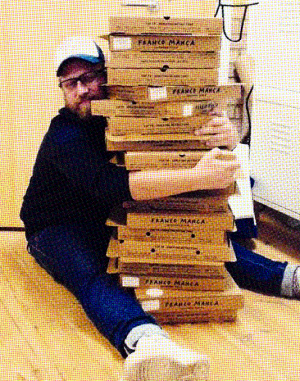
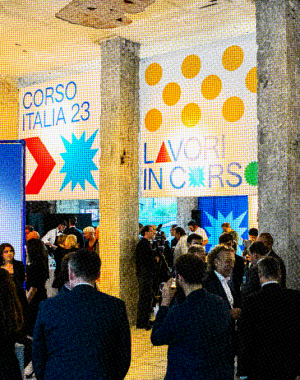
“How do we define a sense of purpose that everyone can get behind?”
There’s a lot of charlatan behaviour in the business of ‘Purpose’. At Something More Near we’re sceptical about much of it, particularly when it’s not linked to operational reality and has set no behavioural benchmarks for the leadership. We are, however, firm believers in the need to clearly articulate an organisation’s ambition and role in the world, as a unifying force that helps decision making. We worked with the leadership team of Allianz Real Estate (one of the world’s biggest property investment managers) to define their purpose. We knew it had to be participative. We engaged nearly 100 colleagues across continents, offices, departments and cultural divides to articulate a purpose and principles that the people internally could actually identify with, HR could adopt and business leaders sign up to. The intergenerational nature of this facilitated outcome ensured that sustainability was no longer seen as adjacent or CSR or nice to have but fully interwoven into the internal business and operational agenda.
“How do we produce aviation fuel for a net zero world?”
Finding clean energy answers for aviation fuel is not easy. Velocys, a spin out from Oxford University has been wrestling with how best to produce sustainable fuels from waste materials, at scale, for years. We worked for them over the inevitable twists and turns of the start-up to scale-up journey to shape key aspects of their communications and brand. Our ‘participative strategy’ approach brought flexibility and efficiency, leveraging internal knowledge and driving agreement at key junctures of growth, on the key issues that informed naming, narrative, positioning and communications.


“How do we bring people together around a shared vision of a London neighbourhood?”
Placemaking is rife with dubious claims and self-serving agendas. Asked by property developer Stanhope to bring together different local partners in White City around a shared vision of the immediate future, we knew engagement meant doing something, rather than just commenting on master plans.
Through multiple conversations with multiple stakeholders (e.g. White City Residents Association, Hammersmith & Fulham Council, Imperial College London, Hammersmith United Charities, Royal College of Art, Transport for London) we navigated and organised on the ground initiatives to build connections and a sense of shared local belief. All the while using local talent alongside outside expertise and perspectives.
A local map, online guide and content, big ‘stunts’ (see grand piano above Television Centre) that got people talking and allowed for a shared experience. The use of imaginative interventions that brought new and established neighbours together is something we feel helped make this White City Innovation District what it is today.
“How do we get this health innovation hub on the map?”
The golden triangle. Oxford. Cambridge. London. Whilst most of the biotech-medtech-lifescience noise has focused on the Oxbridge axis, in London the development of a thriving life science hub south of the Thames is well underway. The founders - King’s Health Partners, Lambeth and Southwark local authorities and Guy’s and St Thomas’ Foundation - wanted a coherent narrative and name for the area and initiative that reflected the inclusive nature of their ambition. We worked with diverse local players and partners to develop and facilitate both the story, a name everyone could be proud of and an identity (with Human Studio) that would be embraced. To put it on the map. Literally.
SC1 is a place-based initiative which aims to support inclusive growth of the life sciences economy in the area.

